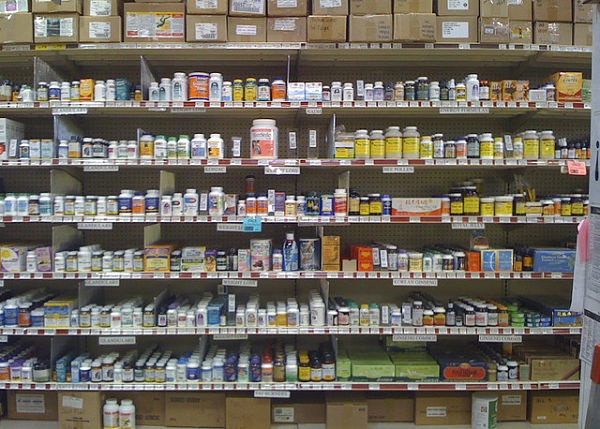Just What Do All These Additives Do?

Every PCR battle is the same: Too little amplification of your target DNA versus too much amplification of off-target DNA. But you can win the PCR battle and amaze your co-workers by mastering the use of PCR additives. PCR additives usually work one of two ways: 1) By reducing secondary DNA structures and thus increasing the amplification of your target DNA, or 2) by reducing non-specific priming and thus reducing the amplification of off-target DNA. Read below to learn which PCR additives do what, and what additives might be best for your circumstances.
Additives That Reduce Secondary Structures:
The following additives work to reduce complex secondary structure. By reducing secondary DNA structures these additives can increase the amplification of your target DNA and improve your yield of hard to amplify products, such as GC rich templates.
DMSO
DMSO is thought to reduce secondary DNA structures, therefore the addition of DMSO is often recommended when amplifying GC rich templates. However, DMSO can also greatly reduce the activity of Taq polymerase. Therefore it is best to strike a balance between template accessibility and Taq activity. To find your best balance, test a variety of DMSO concentrations between 2-10%.
Non-ionic detergents
Non-ionic detergents such as 0.1-1% Triton X-100, Tween 20 or NP-40 are also thought to reduce secondary structures. The use of these additives may increase yield but may also increase non-specific amplification. Therefore while these additives may be helpful in clean low-yield PCRs they should be used cautiously in dirty PCR reactions. Another application of non-ionic detergents is to battle SDS contamination. SDS is a common carryover from the DNA extraction process and can greatly inhibit Taq polymerase. However, inclusion of 0.5% Tween-20 or NP-40 can neutralize the negative effect of SDS.
Betaine
Betaine improves the amplification of DNA by reducing the formation of secondary structures and is often the mystery additive in commercial PCR kits. If you want to add Betaine to your PCR reaction use Betaine or Betaine mono-hydrate, NOT Betaine HCl, at a final concentration of 1.0-1.7M. Betaine may also enhance specificity by eliminating the base pair composition dependence of DNA melting.
Additives That Reduce Non-Specific Priming:
The following additives work to reduce non-specific priming. By reducing non-specific priming these additives can decrease the amplification of off-target DNA and clean up dirty PCR reactions.
Formamide
Formamide is a widely used organic PCR additives. Formamide is thought to work by binding in the major and minor grooves of DNA, destabilizing the template double-helix and lower melting temperature. Formamide is usually used at 1-5%.
TMAC
Tetramethyl ammonium chloride (TMAC) increases hybridization specificity and increases melting temperature. Thus TMAC can eliminate non-specific priming and potential DNA-RNA mismatch. Therefore, TMAC is often recommended in PCR conditions that use degenerate primers. It is usually used at a final concentration of 15-100mM.
Other Common Additives:
The following are common PCR additives that work in other ways to modulate PCR reactions.
Magnesium
Magnesium is a required cofactor for Taq polymerase. Without adequate free magnesium, Taq is inactive. However, excess magnesium can reduce Taq fidelity. The amount of free magnesium in a given PCR reactions is highly variable. Chelating agents (EDTA or citrate), dNTP concentration and proteins can all affect free magnesium. Therefore, if you are having PCR problems you should empirically test a variety of magnesium concentrations to find the ideal concentration for your particular reaction. To do this, test magnesium concentrations from 1.0–4.0mM Mg2+ in 0.5–1mM intervals.
Important Note: Multiple freeze-thaw cycles can cause magnesium chloride solutions to form concentration gradients. Therefore it is important to fully thaw and vortex your stock magnesium solution before each use.
BSA
Bovine serum albumin (BSA) is a common addition in several molecular biology applications, most notably restriction enzyme digestions and PCR. In PCR, BSA may be helpful in combating contaminants such as phenolic compounds. It is also reported to prevent reaction components from sticking to tube walls. Use up to 0.8 mg/ml of BSA in your PCR.
Boilerplate:
While the above PCR additives can improve PCR results, it is impossible to predict which additives at what concentrations are best for your PCR needs. Therefore, like always, you need to empirically test these additives yourself. I know… I know… not what you want to hear. Now stop whining and get back to the bench!
Good luck and happy PCRing!
3 Comments
Leave a Reply Cancel Reply
You must be logged in to post a comment.
A tiny mistake: where one reads ‘inclusion of 0.5% Tween-20 or -40’ you probably meant ‘inclusion of 0.5% Tween-20 or NP-40’.
You may also note that Nonidet P-40 is discontinued, but there are some replacements available.
Thanks for your comment. We’ve updated the article. Also, you might find our article on NP-40 nomenclature useful about Nonident P-40 and NP-40 nomenclature: https://bitesizebio.com/42039/will-the-real-np-40-please-stand-up-chemical-nomenclature-woes/
Wow ! Very useful article! Thanks for this!